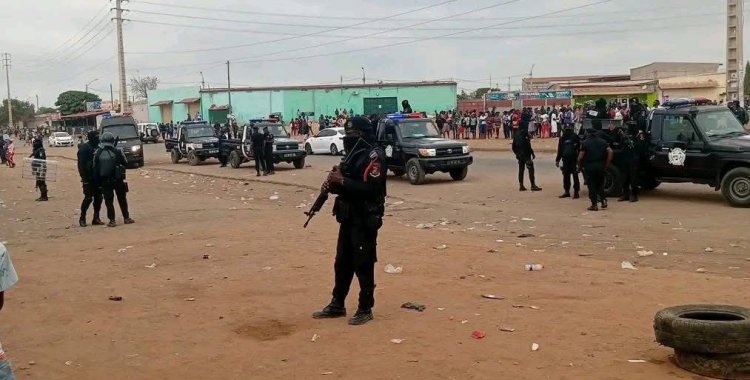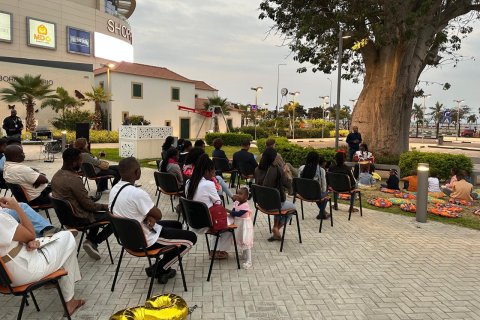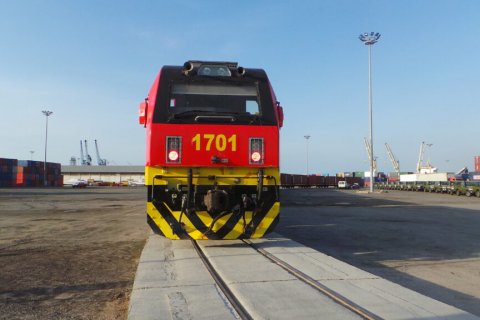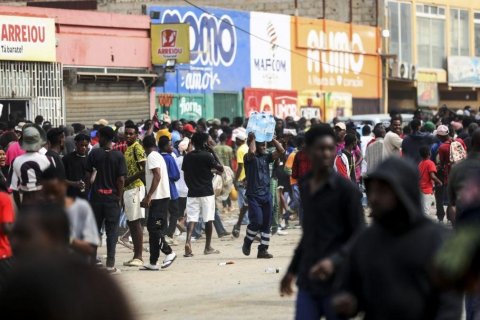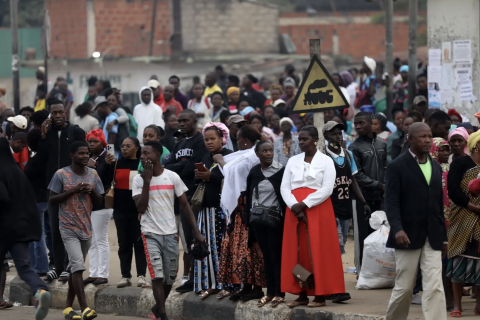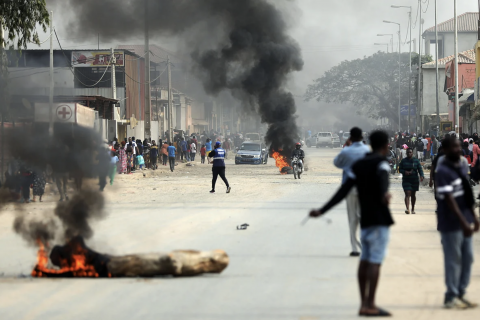On the day the "blue and whites," as they are known, decided not to paint the roads of Luanda and other provinces, the first of three days of "peaceful strike," called by taxi drivers' associations, was marked by acts of vandalism in various neighborhoods of the capital.
Since the early hours of this Monday, several citizens complained of difficulties getting to work due to the lack of taxis. Many had to walk long distances, and others had to wait for more than three hours at taxi stops, as Lusa reported.
Along the entire length of Avenida Fidel de Castro, on the right side of Viana, kilometer 30, in the municipality of Cacuaco, in the Camama and Calemba 2 area, a considerable number of people could be seen at taxi stops, while others walked due to the lack of transportation.
At public transportation stops, demand for buses more than doubled. Paixão Mateus had been waiting for a taxi to get to work for more than three hours. "I've been here for over three hours [at the stop], due to a lack of taxis, there are no [public] buses, the ones that do show up are already full, and right now, I'm undecided because I work at Benfica and I'm at risk of missing work," the 37-year-old carpenter told Lusa, taking the opportunity to protest the fuel price hike.
Vítor Miguel, 25, said he woke up at 5:00 am to get to work early, but the taxi strike forced him to walk from Viana to Zango, lamenting the disruption on the road and the taxi fare hike.
"I'm already late, and it's going to be a very difficult day. (...) I think I'll sleep at work and have no way to get home," he lamented.
In the Calemba 2 area of the municipality of Camama, in the Urban District of Campos Universitário, the entire length of Rua 11 de Novembro, a commercial area with heavy traffic, was blocked with barricades of trash cans, broken trees, and burned tires.
In that area, groups of citizens and motorcycle taxi drivers blocked the movement of vehicles, setting up barricades and even causing attacks on those traveling in their vehicles. This prompted the presence of police officers to restore order and calm the situation, but to no avail.
It was on this same street that some vehicles were vandalized and warehouses and supermarkets were looted by the public. The situation generated chaos and even protests from many passersby and residents in the area. The police also intervened with gunfire to disperse the crowd, but their limited number of officers was unable to contain the fury.
Antónia Jorge, who was walking through Calemba 2, condemned the vandalism of a supermarket in that area, which she said she witnessed starting at 9 am.
"They vandalized, they beat the employees, that's unacceptable, that's robbery, that's vandalism (...). It's the taxi drivers' strike, and what do the people have to do with it? The supermarket has nothing to do with it, so why should they steal from the store? This is wrong, the police can do whatever they want, even with gunshots, they're not running away," she said.
Unable to get to work, Nsimba Martins, 38, decided to walk home, but her mobility was limited when she reached 11 de Novembro Street and encountered barricades on the road.
"All the streets are closed here in Calemba 2. I managed to get out of the house, but I'm coming back. I won't be able to get to work because we don't have taxis. This entire road is closed, they've lit up the tires," she said.
Valéria Daniel, a 22-year-old unemployed woman, justified the "uprising" of the citizens in that district of the municipality of Camama as a measure to "press" the authorities to back down on their policies of raising fuel prices, which make life more expensive for families.
The people "are very angry, (...) taxi fares have to go down because gasoline is leaving our country. The people are really in a bad situation, some people don't work, many women are choosing to work as prostitutes because they don't have jobs," she lamented.
Some gas station stores were also vandalized, and reports of spontaneous protests emerged from several parts of Luanda, including motorcycle taxi drivers, who arrived in groups near the Luanda Government headquarters, but were stopped by the police after gunfire erupted.
Taxi driver Joaquim Catimba, who in the municipality of Viana, along with his colleagues, decided to strike, told Lusa that the strike, which is expected to last until Wednesday, is a protest against rising fuel prices and new taxi fares, as well as a demand for greater respect for the workforce.
Catimba called on the government to review fuel prices and also criticized some colleagues who decided to "break" the strike.

